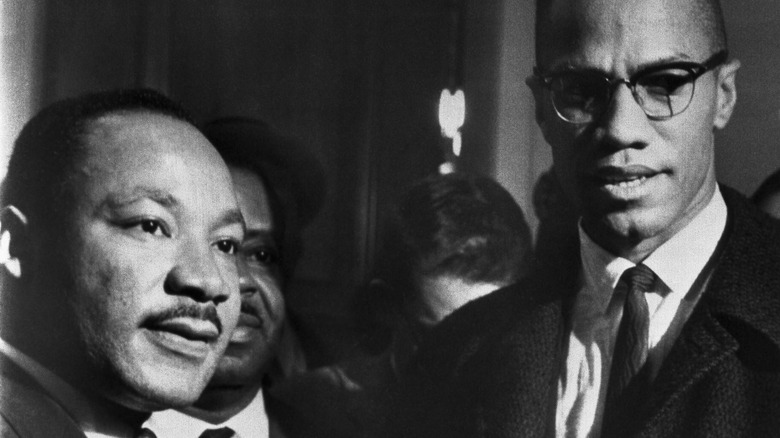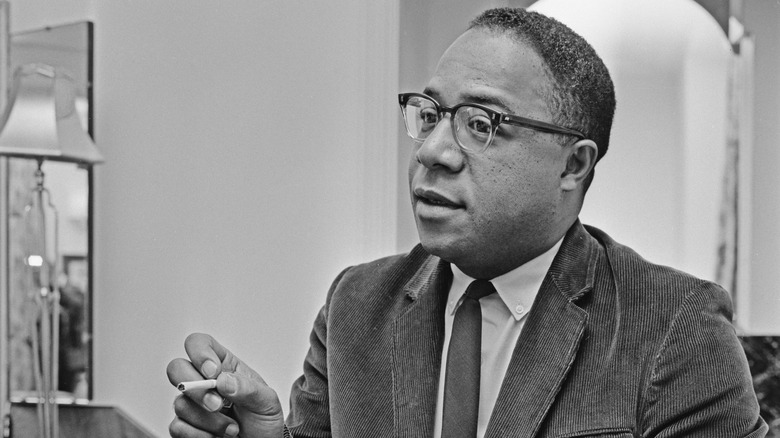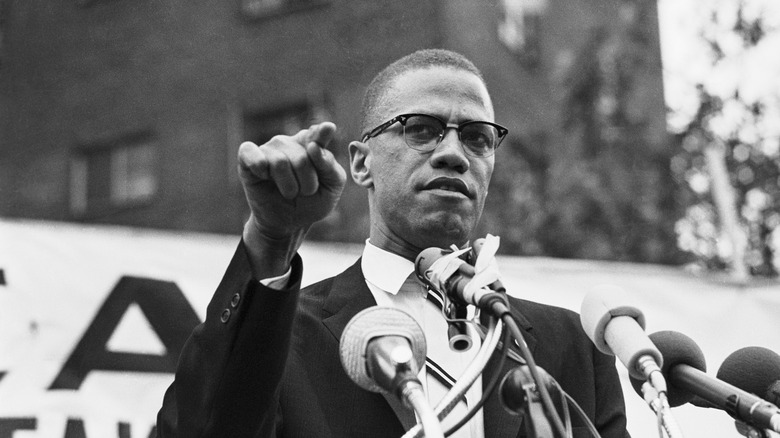What MLK And Malcolm X Really Thought Of Each Other
Though Martin Luther King Jr. and Malcolm X are both remembered as titans of the Civil Rights era, they only met each other one time. It was March 26, 1964, and both men were in Washington D.C. attending a Senate hearing on an anti-discrimination bill — what would eventually become law as the Civil Rights Act of 1964 — according to Biography. After King finished a press conference, Malcolm came up to him. They shook hands. "I'm throwing myself into the heart of the civil rights struggle," Malcolm told King, per the Amsterdam News.
The two men had been attacking the country's racism from opposite ends, King through peaceful civil disobedience while Malcolm agitated for Black self-defense. And while the press played up their rivalry, recent research shows that at least in one instance King's harshest public criticism of Malcolm had been fabricated. This fabrication has distorted historians' views about the two civil rights leaders' relationship for more than 50 years.
Alex Haley's interview with MLK
Author Alex Haley (pictured) interviewed Martin Luther King for the January 1965 issue of Playboy. In the story, King is quoted as saying that in Malcolm's "litany of articulating the despair of the Negro without offering any positive, creative alternative, I feel that Malcolm has done himself and our people a great disservice. Fiery, demagogic oratory in the Black ghettos, urging Negroes to arm themselves and prepare to engage in violence, as he has done, can reap nothing but grief" (via Scraps from the Loft). Journalist Jonathan Eig, while doing research for his new biography of King, "King: A Life," discovered a full transcription of the recorded interview. It differed greatly from what ended up in the magazine and "shows that King was much more open-minded about Malcolm than we've tended to portray him," Eig told The Washington Post.
Haley had apparently made up the first part of the quote and taken the second out of context to make King's stance against Malcolm much harsher. Without the altered parts, King's criticisms are less strident. King called Malcolm "articulate" but didn't agree with "his political and philosophical views" and "wished that he would talk less of violence, because violence is not going to solve our problem." King goes so far as to admit "[m]aybe he does have some of the answer."
Malcolm X's opinion of King
For his part, Malcolm didn't agree with King's non-violent stance, calling him "a 20th-century Uncle Tom," per Biography. But even with this derogatory rhetoric, Malcolm reached out to King in July 1963 about joining him for a Harlem rally, saying in a letter that they should "be able to submerge our 'minor' differences in order to seek a common solution to a common problem posed by a Common Enemy," according to "Civil Rights Since 1787: A Reader on the Black Struggle."
The next month after the Playboy interview came out, on February 21, 1965, members of the Nation of Islam assassinated Malcolm X, who had left the organization the previous year. In a letter King wrote to Malcolm's widow, Betty Shabazz, he told her that "[w]hile we did not always see eye to eye on methods to solve the race problem, I always had a deep affection for Malcolm and felt that he had a great ability to put his finger on the existence and root of the problem," according to Biography.


